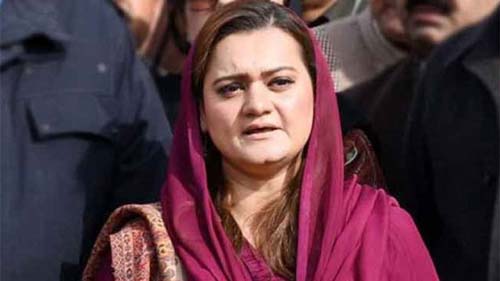Blanket ban imposed on import of luxury items under ‘Comprehensive Economic Plan’: Marriyum

Islamabad: Minister for Information and Broadcasting Marriyum Aurangzeb Thursday said that a blanket ban had been imposed on the import on non-essential luxury items to redress current economic woes under ‘Comprehensive Economic Plan’.
“There has been an emergency situation in the country and people will have to make sacrifices. Prime Minister Shehbaz Sharif is working day and night to provide relief to the masses by resolving their issues,” she said while addressing to a news conference.
Marriyum said a comprehensive economic plan had been formulated under which a fiscal management policy would be introduced to steer the country out of current economic crisis.
The plan would help reduce the country’s reliance on foreign debts, she added.
The minister said it had been decided for the first time that the import of non-essential luxury items would be banned completely.
It included food items, decoration items, imported vehicles, mobile phones, home appliances, fruits, dry fruits, crockery, shoes, door and window items, lightening equipment, sauces, frozen meat, fish and carpets, tissue papers, make-up items, furniture and confectionery brands, shampoos, jams, jelly, sun-glasses, , ice cream, chocolates, musical instruments and cigarettes.
She pointed out that the country was passing through a tough time and facing the malaise due to “economic terrorism” caused by previous Pakistan Tehreek-e-Insaf (PTI) government.
The economic initiatives of current government, she said, would have swift impact on the foreign exchange reserves for the next two months and there would be an annual impact of around $6 billion.
The minister said the foremost priority was to minimize dependency on the import, while an export-oriented economic policy would be introduced to give boost to the local industry which would eventually enhance employment opportunities in the country.
She said the measures under the plan would not only have direct impact on the current account deficit, but also help stabilize the rupee against the dollar.





